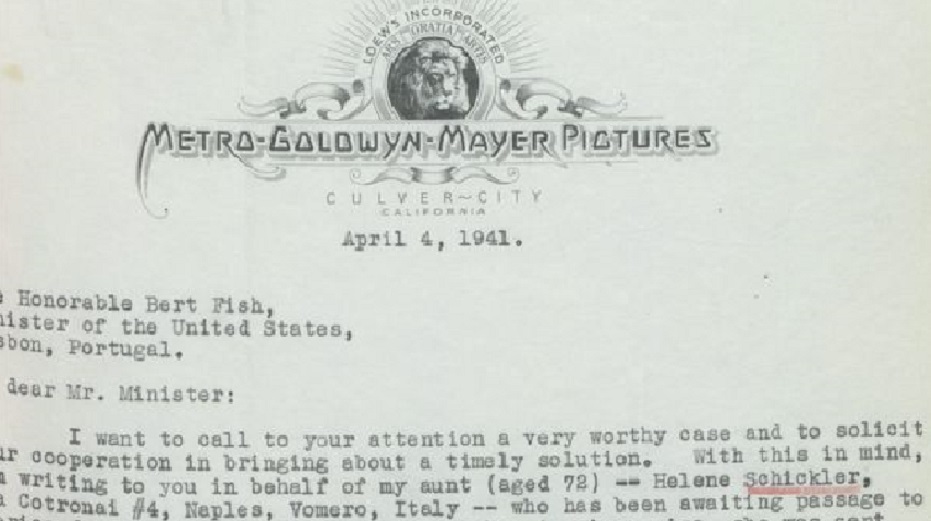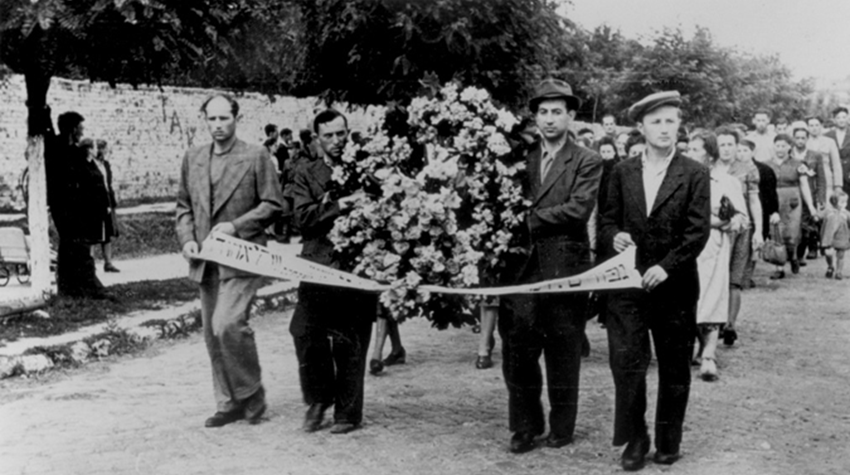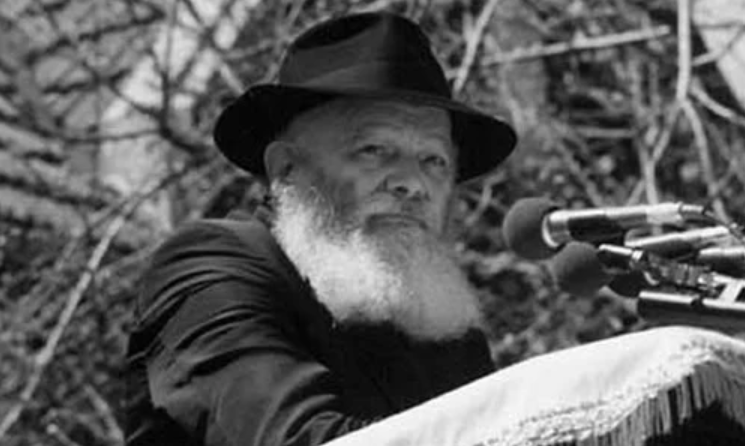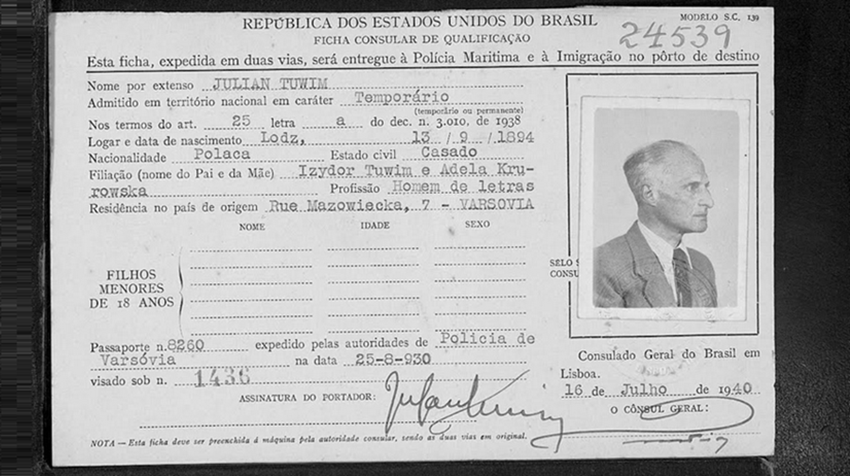Harpo Marx, the comedian, one of the famous Marx brothers, wrote a letter on 4 April 1941 to Bert Fish, the United States Ambassador to Lisbon, requesting his intervention to save a relative trapped in Naples. Helene Schickler had an American visa and a ticket which she had been sent by the Hicem of Lisbon in early January, having been told that she should leave Italy for Lisbon from where she would travel to the United States of America, at the end of January. Matters got complicated, however.
On 7 March 1941, Hicem sent her a letter with some troubling news: although she had a ticket, Helene did not have a Portuguese visa and would probably only get one in June. It would be too late. She had been living in a convent for two years, food was scarce, the nuns would be unable to keep her there for much longer. She still dreamed of joining two of her three children, Edith Schickler and Max Schickler, who lived in Boston. Martha Schickler, her middle child, remained in Germany and was murdered in 1944 at Stutthof concentration camp, located in the old town of Stutthof, now called Sztutowo, in Pomerania, Poland.
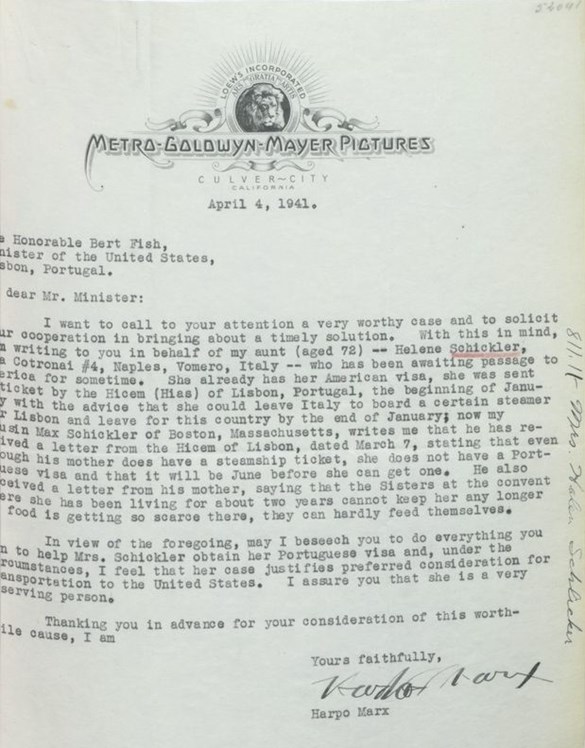
Helene Schickler was born in Germany in 1870 and, as already mentioned, was temporarily lodged in a convent in the Italian region of Naples, together with other people like her: Jews fleeing Nazism. Three years earlier, she had already fled, following the harbinger of Shoah, the Kristallnacht pogrom, in November 1938. She had left an antisemitic Germany to take exile in Italy which, as one of the Axis countries, joined the war on 10 June 1940. Her husband and father of her children, Herman Schickler, had died in 1935, leaving Helene in a country occupied by Nazism, confined to a dreadful fate. So, she wrote to her son, Max, who lived in Boston, and asked for help. Her anguish and despair affected her family and in the space of a week, Harpo Marx offered to write a letter to Bert Fish to ask his cooperation in seeking a solution to the serious problem of his aunt, who was not actually an aunt but a distant relation.
Unfortunately, in his reply of 17 April 1941, Fish write that “the Portuguese Ministry of Foreign Affairs will not accept any intervention from this Legation on behalf of other American citizens”. In other circumstances, in a case such as Helene Schickler’s, he would have asked the German Embassy in Lisbon for help but given the current state of affairs (World War Two), it would be “inappropriate”, said Fish, for him to contact his German colleagues.
Professor Amanda Kluveld, of Maastricht University in Holland, discovered this correspondence while researching the Holocaust in the archives of the American Embassy in Lisbon,
Helene’s destiny was tragic, for we find her in the Yad Vashem archives in the list of those Jews who were taken prisoner in northern Italy. After leaving the convent in Naples, she went to Trieste in the north of Italy, where she was probably put in Risiera di San Sabba concentration camp, before being deported and murdered in Auschwitz.































